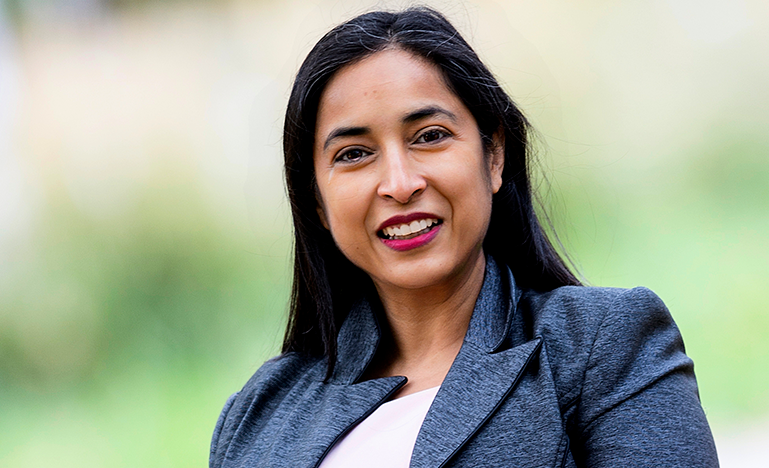Championing diversity in legal tech
The industry needs to evolve if law is to become more accessible.

Monica Goyal, the founder of the legal tech firm My Legal Briefcase, noticed a pattern while she and other lawyers were deciding who would win at a legal tech competition.
"I remember how we talked about how people presented," says Goyal, Director of Legal Innovation at Caravel Law. "The judges were saying, 'these people could be successful,' and they just also happen to be young white men. I was trying to advocate for others who had good solutions but didn't present the same way. Maybe they presented differently because they have a different background, but I thought their ideas were good."
Goyal was the only woman and the only person of colour on the panel. "When you have accelerators, competitions, or any other initiative, you need a diverse group of people at every level," she says.
Her story is part of the growing narrative about the lack of diversity in the technology industry. Researchers are concerned that racial and gender bias is unconsciously built into tech systems. One of the ways to counter this is to have more diverse people involved in developing tech, particularly Black, Indigenous and people of colour.
The legal startup competition was not the first time Goyal was the lone woman or woman of colour. Having attended engineering school, she's accustomed to being the only one in the room.
"The tech sector is very male-dominated," she says. "I would go to tech events where everyone is male, and it can be very intimidating."
According to the 2019 Brookfield Institute report, "Who Are Canada's Tech Workers?", only 20% of Canada's tech workforce are women. While 32% are visible minorities, only 2.6% are Black and 1.5 % are from Indigenous communities.
The Canadian Technology Law Association (Can-Tech) wants to increase diversity in the tech sector. Its working group released a report earlier this year with five recommendations on improving diversity and inclusion in tech law: adopting an overarching diversity statement; collecting demographic data; ensuring diversity is represented at its board level through through new policies; implementing panel diversity policies; and continual diversity and inclusion assessments.
"We recognize that we need to evolve," says Lisa R. Lifshitz, a partner at Torkin Manes, a past-President of Can-Tech and a member of its Diversity and Inclusion Working Group. "The tech industry is all about being fresh and pushing forward. [The working group] agreed that we need to change people's mindsets and make our organization reflect changes in the sector and our society."
Can-Tech's new panel diversity policy requires at least one diverse panelist for each panel. "People are well-meaning, but if we don't have policies to check what we're doing, things will not change," says Andrew Alleyne, a partner at Fasken and Vice President of Can-Tech Law. "Within the first few days of release, we had volunteers offer to help us find diverse panelists for our conference and other events and to serve on our diversity committee. It's vital that we capitalize on this discussion and bring more diverse lawyers into and to the forefront of tech law."
There isn't much by way of research on diversity in Canadian legal tech, but the United States offers some clues. Three years ago, Kristen Sonday wanted to meet other founders, "who looked like me." The co-founder and COO for Paladin, a legal tech firm focused on pro bono work, decided to write the first study about diversity in the U.S. legal tech market. Her 2018 study covered 478 founders across 269 legal tech companies. Only 13.8% of founders were women and 5% were Black or Hispanic. Out of the 26 Black or Hispanic founders, 8 were women.
"The goal of legal tech is to make law more accessible and easier to navigate. And amplifying diverse voices in the legal tech development process helps raise issues others wouldn't consider on their own," says Sonday. "When you eliminate this design bias, you create a more comprehensive and powerful solution."
The most significant barrier for women and people of colour in legal tech is access to capital. Incubators focused on underrepresented groups, targeted seed funding and mentorship programs could help close the gap. For lawyers who want to support women and people of colour, they can advocate for their law firms and legal departments to hire legal tech for pilot projects, which Goyal says is "so valuable" for entrepreneurs.
After working in legal tech for more than a decade, Goyal hopes to inspire the next generation of lawyers to work in legal tech through teaching at the Institute of Future Law Practice.
"In my classes, I have a good representation of women and people of colour," says Goyal. "We need to figure out how to keep them."


